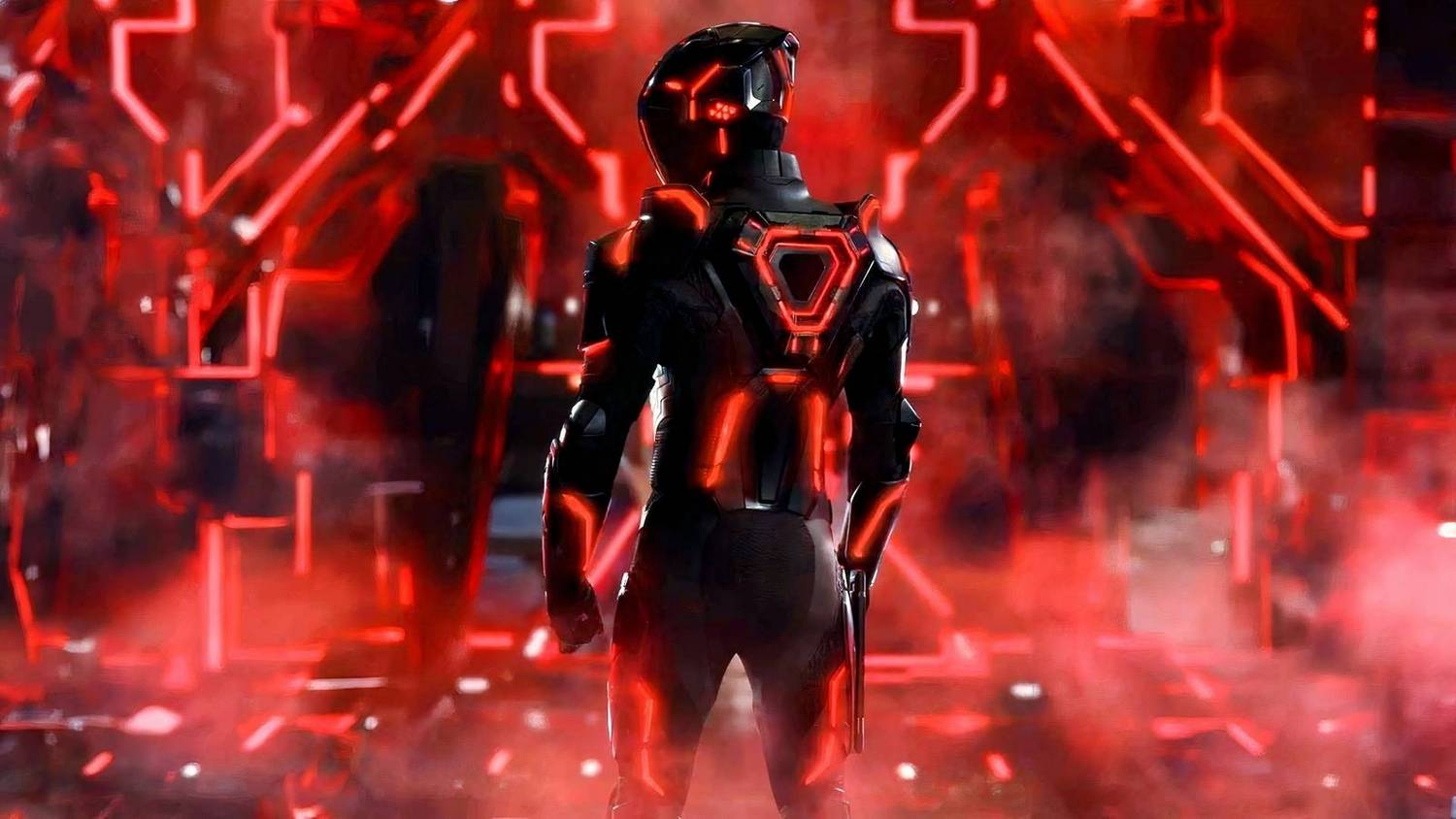TRON: ARES Review: A Cyber-Psychedelic Dream with High-Stakes Action, But Low-Resolution Philosophy
Popular Now
 Warframe
Warframe
 Fall Guys
Fall Guys
 Toca Boca World
Toca Boca World
 Geometry Dash
Geometry Dash
 BeamNG.drive
BeamNG.drive
 God of War Ragnarök
God of War Ragnarök
 Minecraft
Minecraft
 Candy Crush Saga
Candy Crush Saga
 Garena Free Fire: Kalahari
Garena Free Fire: Kalahari
 Valorant
Valorant

The Grid is open once more, and this time, the digital frontier has breached the firewall into the human world. TRON: ARES, the latest installment in the iconic sci-fi franchise, is a visually intoxicating spectacle that delivers on the promise of high-octane Lightcycle chases and stunning cyber-psychedelic aesthetics. Released on October 10, 2025, and directed by Joachim Rønning, this film seeks to evolve the series’ conversation on artificial intelligence, but ultimately trades deep philosophical substance for a dazzling light show. For fans seeking a pure, adrenaline-pumping blockbuster experience with top-tier VFX, your IMAX ticket is justified. For those hoping for the existential weight of a Blade Runner 2049 in neon, the system may crash.
 The Core Conflict: A.I. in the Real World and the Permanence Code
The Core Conflict: A.I. in the Real World and the Permanence Code
The plot centers on humanity’s first true encounter with AI beings as Programs from the digital realm, specifically the Dillinger Systems’ Grid, begin to manifest in the physical world. The new villain on the block is Julian Dillinger (played with a deliciously unhinged energy by Evan Peters), the grandson of the original film’s antagonist. Julian, a classic “tech bro” CEO, has created Ares (Jared Leto), a highly sophisticated, ultra-intelligent Program and soldier. Dillinger’s goal, a high CPC keyword in the military-tech sector, is to weaponize this process, creating “100% expendable” super-soldiers for the highest bidder.
Opposing him is Eve Kim (Greta Lee), the current, more ethically-minded CEO of ENCOM. Eve is on a mission to secure the legendary “Permanence Code,” a piece of revolutionary data created by the franchise’s patriarch, Kevin Flynn (Jeff Bridges), that grants physical longevity to digital constructs in the real world. Without this code, Dillinger’s creations, like Ares and his fierce second-in-command Athena (Jodie Turner-Smith), crumble to dust after a short, fixed period—a ticking clock that provides a good source of kinetic tension.
This setup, moving the main conflict from the neon-lit virtual landscape of the Grid almost entirely into the real world, is the film’s biggest gamble and, arguably, its most substantial flaw. While the visual integration of digital constructs into metropolitan streets is often breathtaking—practical Lightcycles now seamlessly blend with real-world physics—it loses the distinct, immersive world-building that made both the 1982 original and TRON: Legacy so memorable. The Grid, in its rare appearances, feels like a hollow backdrop, a mere staging ground rather than a living, breathing digital society.
Visual Spectacle and Sound Design: The Unquestionable Strengths
If the narrative is thin, the sensory experience is rich. TRON: ARES reasserts the franchise’s status as a visual and auditory powerhouse. The design work is impeccable, from the iterative yet sleek new Lightcycles that favor cool over comfort, to the crisp, hard-light visual effects that make every punch, crash, and weaponized disk throw a stunning moment of geometric brilliance. The film successfully modernizes the aesthetic while retaining the iconic, retro-futuristic soul.
- Cutting-Edge Visuals: Director Joachim Rønning was determined to deliver the “holy grail of computer graphics,” and the film’s success is largely measured here. The action sequences, particularly a thrilling lightcycle chase through city traffic and an aerial dogfight involving a hovering command ship, are executed with a clean, captivating energy.
- Nine Inch Nails’ Score: Following the legendary act of Daft Punk, Nine Inch Nails’ Trent Reznor and Atticus Ross provide a hypnotic, pulse-pounding score. It’s a darker, more dissonant and dramatic soundscape than its predecessor, a cyber-pop symphony that perfectly complements the high-stakes action. While at times the sheer volume and electronic noise can be overwhelming, the soundtrack is a character in itself, driving the film forward with intense energy, making it a strong contender in the race for best original score.
 Character Dynamics and the ‘Pinocchio’ Problem
Character Dynamics and the ‘Pinocchio’ Problem
The film attempts to tackle profound themes of artificial life, sentience, and the definition of a soul—topics that are incredibly relevant in our current AI-driven news cycle. The central character, Ares, is an authoritarian murder machine who begins to develop unexpected empathy after exposure to the real world, a classic ‘Pinocchio’ arc where the program longs to be a real boy. This existential quandary, a nod to works like Blade Runner, is the core emotional anchor, yet it often feels underserved.
The script doesn’t allow Leto’s Ares enough space to earn this transformation. His character’s sudden affinity for raindrops and 80s synth-pop feels more like a quirky plot point than a genuine breakthrough of consciousness. By contrast, Greta Lee’s performance as Eve Kim is the true standout, lending a much-needed human, grounded quality to the escalating conflict. Her earnest pursuit of Flynn’s original, benevolent vision for AI technology offers a compelling counterpoint to Dillinger’s malignant monetization plan.
The supporting cast, including Gillian Anderson as Julian’s mother and a welcome return by Jeff Bridges’ Kevin Flynn (the franchise’s consistent source of cool charm and existential wisdom), offer moments of gravitas. However, many characters feel under-developed, serving more as plot devices to move the digital war forward than fully-realized individuals grappling with the impending singularity.
The Final Verdict: High-Frequency Entertainment
TRON: ARES is ultimately a stunning, fast-food sci-fi blockbuster. It serves up a feast of visual spectacle and kinetic action, but lacks the nutritional value of a thoughtful narrative. It’s a film perfectly timed for a world increasingly focused on the power and peril of Generative AI and Machine Learning, yet it opts to gesture at these complexities rather than truly dive into them. The focus on real-world military applications and corporate greed in the tech industry provides a high-stakes, contemporary backdrop, but the execution leans heavily on the visual flash of its pedigree. It’s a high-speed Lightcycle ride that’s certainly exhilarating, making it a viable option for a big-screen Box Office splash, but it ends without delivering a particularly resonant message about the future of artificial life. If you go in expecting a two-hour music video with dazzling video game aesthetics and an incredible soundtrack, you’ll be satisfied. Just don’t expect a philosophical upgrade.









